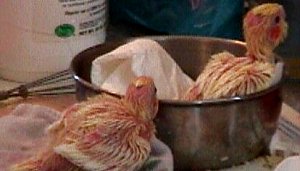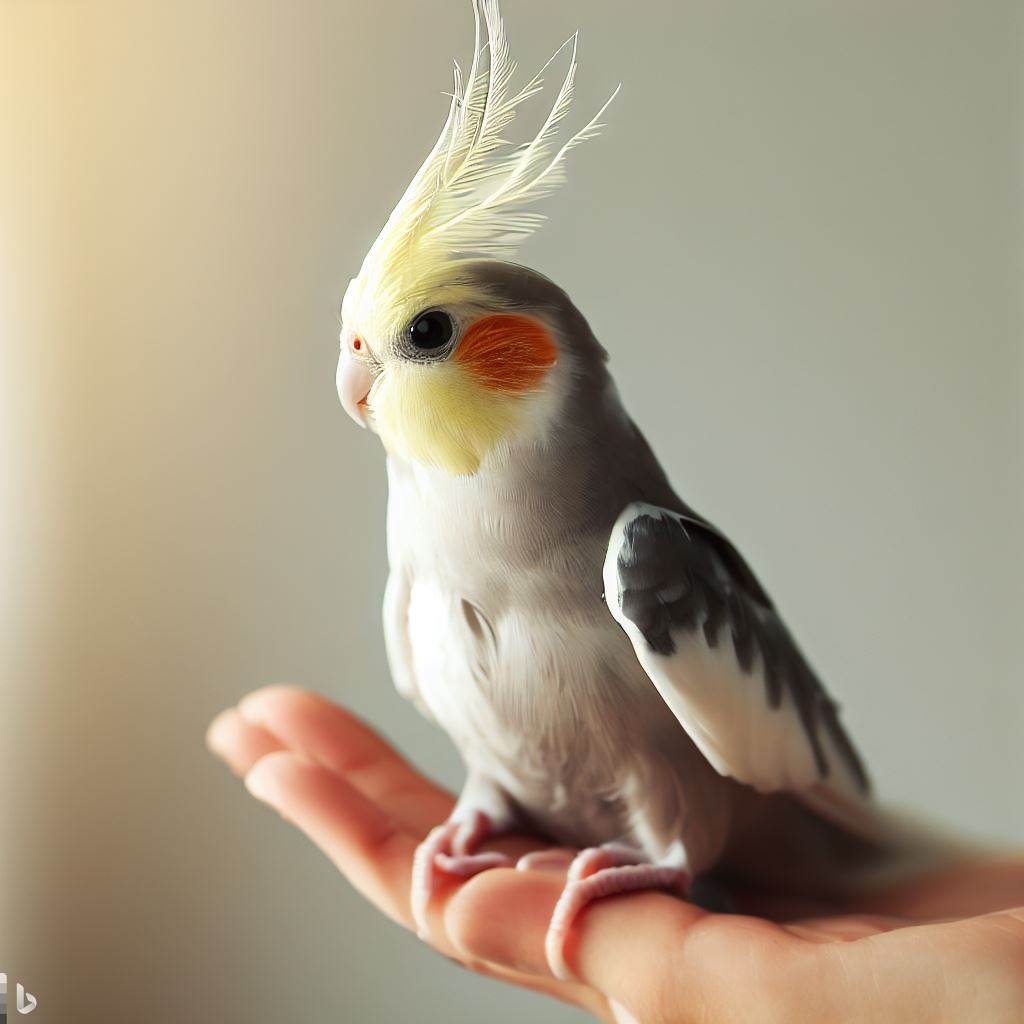
One of the first decisions you must make is whether you want to sell to a pet store or sell the chicks privately. You will have more control in the sale of the chick to a client who comes to your home and chooses a chick. There are a number of questions that can be asked to ascertain whether or not the client has realistic expectations when it comes to owning a parrot. Parrot ownership is a commitment for a life time and it should be stressed that cockatiels in captivity have the capacity to live for thirty years if taken care of properly.
Lets look at some of the questions you will want to ask a perspective bird owner. The first and perhaps the most important key question is “Why do you want a bird?” If the client’s answer is that the color of the bird will go well with the wallpaper in the family room, this isn’t a person who has a strong commitment to developing a bonded relationship with the bird.
As you know parrots require time and attention from their owners. Different types of attention are required – ambient attention where the bird is with the family, one-on-one attention with that special bonded companion, and flock family time. A critical question to ask the client is, ” Do you have the time needed to spend with the bird?” and are you willing to give the bird the different types of attention that is needed? Often a client doesn’t realize the level of commitment that is needed.
Birds are by nature very noisy. They scream at sun up and then at sun down which is normal behavior for them in the wild. Since the parrot is only two to three generations removed from the wild all of its natural behaviors are still intact, even though the bird is captive bred. Another important question to ask your perspective buyer is, “Do you have a problem with noise, is noise an issue?” Then explain that parrots are noisy whether in the wild or in the family room. Cockatiels are known for their contact calls where they will call for members of the flock to find out where they are and if they are allright. These calls can be very loud and irritating for the client who doesn’t understand the flock behavior of cockatiels. Teaching the client about the noises that are associated with owning a parrot helps the client to develop a better understanding of what it takes to own a parrot. Then the client is able to make an informed decision as to whether he can live with that level of noise for the next thirty years.
One of the most complex parts of owning a parrot is feeding a nutritious and varied diet. Birds need a wide variety of foods in order to meet their basic requirements for vitamins and minerals. The learning curve with regards to diet is large. Most people need a couple of months to learn the essentials for properly feeding a parrot. An important question to ask the perspective bird owner is, “Are you willing to chop fresh fruits and vegetables daily?” and “Are you willing to learn what foods are needed to keep the parrot healthy?” Since an adequate diet is essential to the life expectancy of the bird, it requires a commitment of time and energy to feed the bird a nutritious diet.
The parrot is an emotional and sensitive creature who needs attention. “What are your plans when the bird reaches sexual maturity and is no longer the sweet baby that you brought home?” “Are you willing to learn the behavior modification techniques that is needed to change the behaviors?” Parrots have long life expectancy in captivity and should not be abandoned because the bird doesn’t behave as it did when it was younger. Therefore it is very important that the decision to have a parrot be a decision based on the bird’s lifetime.
Parrots are perpetual two year olds. “Do you have the patience to live with one for the next thirty years?” The oldest living cockatiel just died at the age of 36. If you got your cockatiel at 20 years old that means it’s possible for him to be alive when you turn 50. A parrot owner must understand that having a parrot is a commitment for life. This means cleaning a cage everyday and dealing with the noise that bird makes everyday. While some birds are quieter than others, noise is still part of owning a parrot. Birds make messes. They toss food out of the cage, throw it at the windows and walls and will cause its owner to have a new hobby – “vacuuming”. None of this gets better after the thirty years. Parrots do not grow up. They are two for the entire length of their life and this must be taken into serious consideration before the client is allowed to buy the chick.
All parrots need yearly check-ups by an avian vet. “Are you prepared to invest the money necessary for the care of the bird?” Parrots are high maintnenance pets which cost more to take care of than any cat or dog. It is important for the client to understand that there are medical problems with birds which must be taken care of as soon as possible. With a parrot you can not afford to wait to see if the symptoms go away. Waiting another 6 hours or another day may mean the bird’s life, so it is very important to understand the urgency when the bird isn’t acting normal.
Offer your new client a three day guarantee where they can have the bird checked by an avian veterinarian to make sure the parrot is in good health. Stressed birds bite out of fear – allow the bird time to acclimate to his new surroundings.
Offer continued assistance with the pet bird and after the first week call the client to make sure that everything is going well with the bird. Provide a list of recommended reading materials for the continuing education of the pet owner. If the client has a computer then recommend some the URLs to bird sites that will assist the client in caring for his new pet.
Offer the client time to consider his decision has to whether or not he can make the commitment that is required to have a companion parrot. A parrot is not a throw away pet, no matter how much has been paid for the bird. The prospective bird owner must be given a chance to decide if he wants the responsibility for a pet which may live for thirty years. An informed decision which acknowledges the hard work involved taking care of the parrot hopefully insures the bird a loving caring home for its entire life.
Personal responsibility in selling your cockatiel chicks is needed in order that the right family be found for each chick. Finding that loving, caring family who is willing to provide all that the chick needs in, time, attention, medical care, excellent nutrition, toys, and a cage large enough for the parrot takes time. I find that after handfeeding a chick for ten weeks my heart’s desire is to find a family that will give my chick the best home possible.

